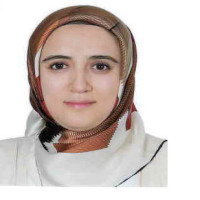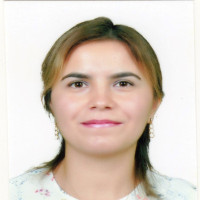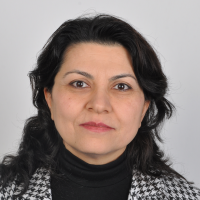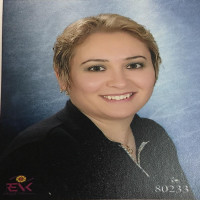Research Article
Case Report
Systematic Reviews and Meta Analysis
Systematic Reviews and Meta Analysis
1. Prekonsepsiyonel Bakımda Mobil Aplikasyonların Etkinliğinin Değerlendirilmesi: Bir Sistematik DerlemeSystematic Reviews and Meta Analysis
2. Mastektomi Olan Hastalar ile Yapılan Lisansüstü Tezlerin İncelemesi: Bir Sistematik DerlemeSystematic Reviews and Meta Analysis
3. Pediatrik Onkoloji Hastalarında Sanat Terapisi Uygulamalarının Etkinliği: Sistematik DerlemeSystematic Reviews and Meta Analysis
4. Kronik Sağlık Sorunları Olan Adölesanlarda Kullanılan Geçişe Hazır Oluşu Değerlendirme Araçlarının Sistematik İncelenmesiSystematic Reviews and Meta Analysis
5. İç Hastalıkları Hemşireliği ve Bazı Alt Uzmanlık Alanlarında Etik İlkeler, Kodlar ve StandartlarIssue Editorial Board

Issue Reviewers






















Sivas Cumhuriyet Üniversitesi Hemşirelik Fakültesinden 2000 yılında mezun oldu. 2004 yılında İç Hastalıkları Hemşireliği alanında yüksek lisansını, 2013 yılında doktora programını tamamladı. 1996-2000 yılları arasında Cumhuriyet Üniversitesi Tıp Fakültesi Hastanesi'nde klinik hemşiresi olarak çalıştı. Araştırma çalışmaları inme, MS gibi nörolojik hastalıklar ve nörolojik hastalığı olan bireylerin bakım verenleri üzerine yoğunlaştı. Halen Sivas Cumhuriyet Üniversitesi İç Hastalıkları Anabilim Dalı'nda öğretim üyesi olarak görev yapmaktadır.
Translated with DeepL.com (free version)


Marmara Üniversitesi Hemşirelik Yüksekokulu’ndan 2004 yılında mezun olan Taşkın Yılmaz, mezuniyetinin ardından yedi yıl İstanbul Süreyyapaşa Göğüs Hastalıkları ve Göğüs Cerrahisi Eğitim ve Araştırma Hastanesi’nde klinik hemşiresi, eğitim hemşiresi, kalite hemşiresi ve başhemşire yardımcısı görevlerini yürütmüş ve ardından 2 yıl boyunca İstanbul Sağlık Müdürlüğü’nde eğitim hemşiresi olarak görev yapmıştır. Çalışma hayatı ile birlikte eğitim hayatına da devam eden Taşkın Yılmaz, Marmara Üniversitesi İç Hastalıkları Hemşireliği ABD’da 2007 yılında yüksek lisans ve 2012 yılında doktora eğitimini tamamlamıştır. 2013 yılında Sivas Cumhuriyet Üniversitesi Suşehri Sağlık Yüksekokulu’nda Yard. Doç. olarak göreve başlayan Taşkın Yılmaz, 2019 yılında Doçent unvanı almıştır. 2021 yılından itibaren Sakarya Uygulamalı Bilimler Üniversitesi Sağlık Bilimleri Fakültesi Hemşirelik Bölümünde öğretim üyesi olarak çalışmaktadır. Ayrıca Dekan Yardımcılığı ve Hemşirelik Bölüm Başkanlığı görevini yürütmektedir. Taşkın Yılmaz’ın diyabet, obezite, KOAH, astım gibi kronik hastalıkların yönetimine yönelik ulusal ve uluslararası alanda çok sayıda makale ve bildirisi bulunmaktadır.








1996 yılında Antalya Sağlık Meslek Lisesi’nden mezun olduktan sonra Ankara Numune Eğitim ve Araştırma Hastanesi’nde hemşire olarak çalışmaya başlamıştır. 2001 yılında
Hacettepe Üniversitesi Hemşirelik Yüksekokulu’ndan mezun olarak lisans eğitimini tamamlamıştır. 2005 yılında Hacettepe Üniversitesi Sağlık Bilimleri Enstitüsü Cerrahi Hastalıkları Hemşireliği Anabilim Dalı’nda yüksek lisans eğitimini tamamlayarak bilim uzmanlığı derecesini almıştır. 2006 yılında Abant İzzet Baysal Üniversitesi Bolu Sağlık Yüksekokulu’nda Araştırma Görevlisi olarak çalışmaya başlamış, 2007 yılında doktora eğitimi için İstanbul Üniversitesi Florence Nightingale Hemşirelik Fakültesi’nde görevlendirilmiştir. 2007-2012 yılları arasında İstanbul Üniversitesi Florence Nightingale Hemşirelik Fakültesi’nde araştırma görevlisi olarak çalışmış ve 2012 yılında İstanbul Üniversitesi Sağlık Bilimleri Enstitüsü Cerrahi Hastalıkları Hemşireliği Anabilim Dalı’nda doktora unvanını almıştır. 2012-2014 yılları arasında Abant İzzet Baysal Üniversitesi Bolu Sağlık Yüksekokulu’nda Yardımcı Doçent Doktor unvanı ile Cerrahi Hastalıkları Hemşireliği Anabilim Dalı Başkanlığı ve Yüksekokul Müdür Yardımcılığı görevlerini yürütmüştür. 2014 yılında Necmettin Erbakan Üniversitesi Sağlık Bilimleri Fakültesi Hemşirelik Bölümü’nde çalışmaya başlamış ve 2018 yılında kadrosu Necmettin Erbakan Üniversitesi Hemşirelik Fakültesi’ne aktarılmıştır. Fakülte bünyesinde, Cerrahi Hastalıkları Hemşireliği Anabilim Dalı Başkanlığı, Bölüm Başkan Yardımcılığı, Fakülte Kurulu ve Fakülte Yönetim Kurulu üyeliği görevlerini yürütmüştür. Nöroşirürji hemşireliği, yoğun bakım hemşireliği, cerrahi hastalıkları hemşireliği ve afet hemşireliği alanında yaptığı çalışmalar ile 2021 yılında Cerrahi Hastalıklar Hemşireliği Alanı’nda Doçent unvanını almıştır. Halen Necmettin Erbakan Üniversitesi Hemşirelik Fakültesi Cerrahi Hastalıklar Hemşireliği Anabilim Dalında öğretim üyesi olarak çalışmalarını sürdürmektedir.







Prof. Dr. Özgül EROL
Trakya Üniversitesi, Edirne-Türkiye

Aim & Scope
Ordu University Journal of Nursing Studies is an international, open-access, and peer-reviewed scientific e-journal that aims to ensure that qualified work in all fields of nursing.
Ordu University Journal of Nursing Studies welcomes original research, meta-analysis, systematic review, case report, review articles, and letters to the editor. The submitted study for publication to the journal must be in Turkish or English. The journal is published three times a year in April, September, and December. There is no charge for the publication of the scientific studies submitted to the journal. All issues of the journal can be accessed free of charge from the https://dergipark.org.tr/tr/pub/ouhcd website.
Indexing: Rootindexing, Google Scholar, Türk Medline, Asos İndeks, Türkiye Atıf Dizini, TUBİTAK ULAKBİM TR Dizin (2021), WorldCat, Index Copernicus (2022)
Author Guidelines
ORDU UNIVERSITY JOURNAL OF NURSING STUDIES AUTHOR GUIDELINES
Ordu University Journal of Nursing Studies is published by the Department of Nursing of the Faculty of Health Sciences at Ordu University.
Purpose and Scope
Ordu University Journal of Nursing Studies is an international, open access and peer-reviewed scientific e-journal that aims to ensure that qualified work on all fields of nursing is shared.
Ordu University Journal of Nursing Studies welcomes original research, systematic review, meta-analysis, case report, invited review articles and letters to editor. The submitted for publication in to journal work must be in Turkish or English. The journal is published three times a year in April, September and December. There is no charge for the publication of the scientific studies submitted to the journal. All issues of the journal can be accessed free of charge from the https://dergipark.org.tr/tr/pub/ouhcd website.
Open Access Policy
Ordu University Journal of Nursing Studies is an open access publication and its content is offered to readers free of charge. Readers can read, save, copy, and link the full text of their articles published in the journal without permission from the publisher or the author, except for commercial purposes.
General Principles
The manuscripts submitted for publication in Ordu Üniversitesi Hemşirelik Çalışmaları Dergisi - Ordu University Journal of Nursing Studies should not be published before and should not be sent to another journal within the publication process.
If the manuscript is published in the abstract paper before it is published in the journal, it should be stated on the title page.
Scientific and ethical rules of the study, thoughts, and opinions are the responsibility of the authors/authors.
After the manuscript is submitted to the journal, the names of the authors cannot be changed.
Authors are not paid for the articles published in the journal.
Ethics committee approval must be obtained and documented for clinical and experimental studies that require ethics committee approval. National and international ethical rules must be observed. Ethics committee approval should be uploaded to the system during the submission of the study to the journal.
Turkish articles should be based on the Turkish Dictionary of Turkish Language Association.
Since the journal has a double-blind peer-review policy, there should be no author names in the main article.
The Copyright Transfer Form must be signed with wet signatures by the authors listed in the same order as on the title page of the manuscript.
In the method section of the study, the date of the study must be stated.
Ethical Rules
Ethics committee approval should be obtained for clinical and experimental studies. In the articles that report the results of the experimental study, after the procedure applied to the individuals participating in the study is explained, information about the approval of the study should be included in the method section.
“Informed consent” from the participant, institution name of the ethics committee approval, decision date, and decision number should be written in the method. According to the double-blind review principle of our journal, institutional information should be given while the ethical committee approval is written only on the title page. The journal accepts the principle of conformity to WMA the Helsinki Declaration Principles in the study in which the “human subject” is included. The authors must state in the method section of the article that they conducted the research in accordance with the Helsinki Declaration principles, received ethical committee approval from the ethics committees of their institution, and received “Informed consent” from the people who participated in the study.
All articles should include a statement that the rules of “research and publication ethics” are complied with.
If “animal” was used in the study, the authors must state that they protect animal rights in their studies according to the principles of "Guide for the Care and Use of Laboratory Animals" (nap.edu/catalog/5140.html) and that they have obtained ethical committee approval from the ethics committee of their institution.
In the case reports, a signed “informed consent” should be obtained from the patients and stated in the case report.
Copyright regulations must be observed for the ideas and works of art used.
The institution, date and approval number, author contributions, conflict of interest, financial support and acknowledgment should be written on the title page.
Article Preparation
The Journal of Ordu University Nursing Studies has adopted the ICMJE-Recommendations for the Conduct, Reporting, Editing, and Publication of Scholarly Work in Medical Journals (Updated December 2019 - http://www.icmje.org/recommendations/ ) in creating article writing rules and determining the format of the article. Observational studies sent to the journal STROBE (http://www.equator-network.org/reporting-guidelines/strobe/), randomized studies CONSORT (http://www.equator-network.org/reporting-guidelines/consort/), diagnostic valuable studies STARD (http://www.equator-network.org/reporting-guidelines/stard/) systematic review and meta-analysis PRISMA (http://www.equator-network.org/reporting-guidelines/prisma/), qualitative studies COREQ (http://www.equator-network.org/reporting-guidelines/coreq) and non-randomized behavior and public health studies TREND (http://www.cdc.gov/trendstatement/) guidelines should be.
Article Format
To submit a manuscript to the Ordu Üniversitesi Hemşirelik Çalışmaları Dergisi - Ordu University Journal of Nursing Studies, you need to register at https://dergipark.org.tr/tr/pub/ouhcd and register at https://dergipark.org.tr/tr/login
The manuscript is entered from its address by entering the entry tab and registered in the tab and sent electronically. All submitted manuscripts must be formatted in the Microsoft Word program, in A4 paper size, in two lines, with a margin of 2.5 cm from all edges of the paper. It should be written in Times New Roman font with 12 font size. The page number should be added to all pages and the page number should be in the middle of the page.
Title Page
The title of the article and running title should be written in English for English manuscript.
The names and surnames of the authors, their academic and professional affiliations, ORCID number, complete address, phone, GSM, fax number(s), mail, e-mail address (es) of corresponding author must be specified on the title page.
Acknowledgment information should be written.
In studies with more than one author, the contributions of the authors to the study must be indicated on this page. Author Contribution: Idea / Concept: ......; Design: ....; Supervision:....; Materials:…..; Data Collection and/or Processing; Analysis and / or Interpretation:….; Literature review:….; Writing:….;Critical review:……
Information on whether the study was presented at a congress should also be included on this page.
Ethics Committee Approval, conflict of interest, and financial support should be written on the title page.
Similarity (Plagiarism) Scanning
The similarity rate of the study should be written on the title page and the entire similarity report should be uploaded to the system. Turkish title, Abstract, English title, Abstract, main text (excluding references), and tables should be included in the plagiarism screening of the article. When scanning for plagiarism, the "quote excluded" and "<5 words" options should be selected. The similarity rate should not exceed 15% and not be from a single study or article.
Abstract
The abstract should be prepared in English for manuscripts written in the English language and should not exceed 250 words and should include English keywords. The Objective, Method, Results, and Conclusion should be included in the abstract. Each of these sections must start on a new line. Each of these sections should start on a new line and be in 11-point font.
Keywords
Key words in English must be at least 3 and maximum 5. In the writing of the keywords, only the first letter of the first word and the initials of the proper nouns should be capitalized, other words should be written in lowercase. A comma should be placed between keywords and they should be written in alphabetical order. English keywords should be written in accordance with Index Medicus: Medical Subject Heading (MeSH)(https://www.nlm.nih.gov/mesh/meshhome.html )
Original Article
The studies offer new nursing studies that are not covered in the previous studies.
The section should consist of Abstract, İntroduction, Method, Results, Discussion, Conclusions And Recommendations for Applications, What Did the Study Add to the Literature?, Acknowledgements, Ethics Committee Approval, Author Contributions, Conflict of Interest, Financial Disclosure, References, Tables/Figures. Ethical Committee Approval, Author Contributions, Conflict of Interest, and Financial Support should be included in the title page.
Original research should be between 4000-7000 words excluding abstract, table, figure, and reference list, maximum 40 sources should be used, and the total number of tables and figures should not exceed 5.
Systematic Review and Meta-Analysis
A systematic review, meta-analysis, and invited review can be prepared in the field of nursing. Headings such as Introduction, Conclusion, and References should be added in the text. The systematic review should not exceed 7000 words, excluding the abstract, tables, figures, and references, and a maximum of 50 references should be used. The total number of tables and figures should not exceed 5.
Case Report
It should be composed of Introduction, Case, Discussion, Conclusion, References, Tables, and Figures.
Letter to the Editor
It is published at the discretion of the editor. The text can be edited if necessary. The maximum number of references can be 15. The copyright transfer form must be filled in and sent to the editor by letter. The abstract of the letter to the editor should be 100-250 words. Subtitles are not required in the text. It should include the main text and results. The letter to the editor should not exceed 1000 words other than sources and English abstract. The author of this letter should give the source of the paper, her/his name, surname, and address.
Tables and Figures
Tables and figures should be prepared in the Microsoft Word program.
Tables and figures should be placed after references in the text.
The table number and title should be prepared at the top of the table with bold and 11 pt.
A dot must be placed after the table number.
Tables should not contain a vertical line and the horizontal line should be as little as possible.
The lines of the tables should be rendered invisible without being deleted.
The rows in a table must be in line spacing.
Each table must be cited in the text.
Dots should be placed between decimal numbers in tables and in the text.
Tables should be prepared in vertical page format whenever possible.
Flowcharts should be submitted in tables or in JPEG format.
Figures/graphics and pictures should be prepared in as high a resolution as 250 dpi and 500-800 dpi.
References
References should start from a new page.
All references specified in the text should be included in the "References" list. Up to 40 sources for original studies and up to 50 references for meta-analysis studies should be used.
All references should be listed alphabetically in the ‘References’ section at the end of the main text of the manuscript.
The long names of the journals should be written in the references.
The accuracy of the references is the responsibility of the author(s).
If reference is made to the source before the publication, the DOI number must be written.
Only published or printed references should be used in the text.
Theses and abstracts presented in the congress should not be used as references.
When referring to resources within the text, the authors' surnames and publication date are used.
Each reference should be written with an indentation space as in the example below.
Examples are as follows:
Erbil (2011) ...
According to Bölükbaş ) (2003) ...
Erbil and Yılmaz (2005) ...
According to Erbil and Bölükbaş (2015) ...
Tuzcu and collegues (2016) ...
If the number of authors is 3 and more, it should be mentioned as " Hintistan and collegues (2016) or Hintistan et al., (2016)" from the first place in the text.
If more than one work is referred to at the end of the sentence, references should be given in brackets in alphabetical order as follows, followed by a semicolon.
... (Erbil, 2005; Hintistan et al., 2016; Tuzcu et al., 2016).
The publication of the same author in the same year (Erbil, 2015a) should be indicated as (Erbil, 2015b).
Here are some examples of publications in the references list:
Quote from the journal article:
If the source is an article, the full name of the article, the name of the journal to which it is published, volume, issue, and page numbers should be written after the date.
If the authors are more than six authors, first the six authors' surnames are written, and then the first letter of his / her name is written in the references section.
Erbil, N. (2011). Prevalence and risk factors for female sexual dysfunction among Turkish women attending a maternity and gynecology outpatient clinic. Sexuality and Disability, 29, 377-386.
Erbil N, Bölükbaş N. (2012). Beliefs, attitudes, and behavior of Turkish women about breast cancer and breast self-examination according to a Turkish version of the Champion Health Belief Model Scale. Asian Pacific Journal of Cancer Prevention, 13, 5823-5828.
Pınar G, Taşkın L, Eroğlu K. (2008). Başkent üniversite öğrenci yurdunda kalan gençlerin toplumsal cinsiyet rol kalıplarına ilişkin tutumları. Sağlık Bilimleri Fakültesi Hemşirelik Dergisi, 15, 47-57.
Erbil N, Taş N, Uysal M, Kesgin A, Kılıçarslan N. Gökkaya, U. (2011). Urinary incontinence among pregnant Turkish women. Pakistan Journal of Medical Sciences, 27, 586-590.
Citations from the journal additional issue:
Incesu C. (2004). Sexual functions and sexual dysfunctions. Journal of Clinical Psychiatry, 7 (Suppl-3), 3-13.
Quote from the book:
If the source is a book, the name of the authors, the date of publication, the name of the book, the number of publications, the printing house, the number of pages should be written. If the source book is a translation, the translators should be named.
Taşkın L. (2009). Obstetric and Women's Health Nursing. 9th Edition, Ankara, Sistem Ofset Printing, p., 11th.
Quote from the book section:
Author's name, year, name of the department, name of the editor, name of the book, printing house, page number should be written.
Hornbeck P. (1991). Assay for antibody production. Colign JE. Kruisbeek AM, Marguiles DH, editors. Current Protocols in Immunology. New York: Greene Publishing Associates, p. 105-32.
Quote from the Internet source:
The full publication date must be used. The article should include the direct access address and the downloaded data.
Turkey Demographic Health Survey (TDHS) 2013 Main Report. Accessed on: 25.09.2016,
http // www.hips.hacettepe.edu.tr / tnsa 2013 / report / TNSA_2013_ana_rapor.pdf
What did the study add to the literature?
The contribution of the submitted study to the existing literature should be explained in clear sentences (2-3 items), and should be added before the references section.
Author's Contributions
To be able to describe the author as a writer in a scientific paper according to the International Committee of Medical Journal Editors [ICMJE]), the authors who will write articles to the Ordu Üniversitesi Hemşirelik Çalışmaları Dergisi - Ordu University Journal of Nursing Studies, must meet the following four criteria:
- Make significant contributions to the design or design phases of the study or to the collection, processing, analysis or interpretation of the data.
- It should make important intellectual/conceptual arrangements regarding the preparation or content of the work draft.
- Approve the final form of the study to be published.
- Acknowledge that the questions about the accuracy and completeness of any part of the study are properly investigated and resolved, and are responsible for everything.
- The names of the authors should be indicated after the initials of the names and surnames in the author's contribution should be indicated on the title page.
Author Contribution: Idea / Concept: ......; Design: ....; Supervision:....; Materials:…..; Data Collection
and/or Processing; Analysis and / or Interpretation:...; Literature review:….; Writing:….;Critical review:…
Acknowledgments
This section should be short and it should be on the title page.
Conflict of Interest
The authors should state all possible situations in which a conflict of interest may occur. If there is no conflict of interest, this should also be stated on the title page.
Financial Disclosure
If financial support for the study is received, this should be stated in on title page.
Copyright Transfer Form
All authors must wet sign the Copyright Transfer Form. While submitting a manuscript, the signed Copyright Transfer Form must be scanned and uploaded to the system.
Article Evaluation Process
When the submitted study is decided to be included in the evaluation process according to the purpose and scope of the journal, it is first sent to spelling control. After the spelling check is completed, it is sent to at least two reviewers for evaluation by the editor. If one of the reviewers does not find the study appropriate for publication, the study is sent to the third reviewer. After the evaluation of the reviewers, the study is sent to the corresponding author by the editor. The requested corrections and edits must be completed within 7 days and the text must be uploaded to the system together with the response file to the referee. In order for a study to be accepted in the journal, it must receive "acceptance" from at least two referees. After the review of the reviewers is completed, the author cannot make any changes.
Article Withdraw
Articles sent to the Ordu University Journal of Nursing Studies cannot be withdrawn after the referee process begins or sent to another journal. The authors can withdraw their articles that have not started the referee process by contacting the journal editors with a letter of application that they want to withdraw their article. The authors cannot submit their articles
without the approval of the withdrawal of their articles. The authors cannot submit their articles to another journal without the approval of the withdrawal of copyrighted articles to Ordu University Journal of Nursing Studies.
Last Correction
The article will be sent to the corresponding author to correct spelling errors before publication. No changes or additions can be made at this stage. It is only necessary to examine whether there are errors in the spelling. It should be noted that only the authors are responsible for the final revision. Corrections must be made and returned within two days. If the publisher does not receive a response from the authors within two days, it is assumed that there are no errors to correct and the article will be published.
* Author guide was updated on November 5, 2023.
Ethical Principles and Publication Policy
ETHICAL PRINCIPLES AND PUBLICATION POLICY
A) Open Access Policies
The Ordu University Journal of Nursing Studies is an open access publication and its open access policy is implemented based on the Budapest Open Access Initiative (BOAI).
The definition of open access is “its free availability on the public internet, permitting any users to read, download, copy, distribute, print, search, or link to the full texts of these articles, crawl them for indexing, pass them as data to software, or use them for any other lawful purpose, without financial, legal, or technical barriers other than those inseparable from gaining access to the internet itself”.
Readers can open access to the journal archive free of charge at https://dergipark.org.tr/tr/pub/ouhcd/archive. Readers can read, download, save, copy, and link the full text of journal articles without obtaining permission from the publisher or author, except for commercial purposes.
B) Ethical Policies
All components (authors, editors, reviewers, publishers, readers) involved in the publication process of scientific articles published in peer-reviewed journals must comply with ethical principles. The ethical principles our journal adheres to have been prepared as open access, taking into account the guidelines and policies published by the Committee on Publication Ethics (COPE) which are detailed below.
Ethical responsibilities of authors
The author(s) who submit a study to the Ordu University Journal of Nursing Studies are expected to comply with the following ethical responsibilities:
• The studies submitted by the author(s) are expected to be original. If the author(s) benefit from or use other publications, they are required to cite and/or cite entirely and accurately.
• The author(s) who do not contribute to the content intellectually in the creation of the study should not be specified as authors.
• Situations and relationships that may constitute a conflict of interest, if any, of all publications submitted for publication should be disclosed.
• Data sets regarding their articles can be requested from the author(s) within the framework of the evaluation processes, in such a case the author(s) should be ready to present the expected data and information to the editorial board and scientific committee.
• The author(s) must have a document showing that they have the right to use the data used, the necessary permissions for the research/analysis, or the consent of the experimental subjects.
• In the event that the author(s) notices an error or mistake in their published, online first or evaluation process, they are obliged to cooperate with the editor in informing, correcting, or withdrawing the journal editor or publisher.
• Authors can not have their publication in the application process of more than one journal at the same time. Each application can be started following the completion of the previous application. A study published in another journal can not be sent to the Ordu University Journal of Nursing Studies.
• Changing the author responsibilities of a publication whose evaluation process has begun (such as adding an author, changing the rank of authors, or removing an author) can not be proposed.
The responsibilities of editors
The editors and field editors of Ordu University Journal of Nursing Studies perform the following ethical duties based on the "COPE Code of Conduct and Best Practice Guidelines for Journal Editors" and "COPE Best Practice Guidelines for Journal Editors" published by the COPE as open access and should have responsibilities:
General duties and responsibilities
The editors are responsible for every publication published in the Ordu University Journal of Nursing Studies. In the context of this responsibility, editors have the following roles and responsibilities:
• To make efforts to meet the information needs of readers and authors,
• To ensure the continuous development of the journal,
• To conduct processes to improve the quality of studies published in the journal,
• To support freedom of thought,
• To ensure academic integrity,
• To continue business processes without compromising intellectual property rights and ethical standards,
• To demonstrate openness and transparency in terms of publication on issues that require correction and explanation.
Relations with the readers
Editors should make decisions by considering the knowledge, skills and experience expectations of all readers, researchers and practitioners. It should be careful that the published studies contribute to the reader, researcher, practitioner and scientific literature and that they are original. In addition, editors are obliged to consider the feedback from readers, researchers and, practitioners, and to provide explanatory and informative feedback.
Relations with authors
The duties and responsibilities of the editors to the authors are as follows:
• Editors should make a positive/negative decision based on the importance, originality, validity, clarity of the narrative, and the journal's aims and scopes.
• Studies that are suitable for the scope of publication should be included in the preliminary evaluation stage as long as they do not have serious problems.
• Editors should not ignore positive reviewers’ suggestions unless there is a serious problem with the study.
• New editors should not change the decisions made by the previous editor(s) for studies unless there is a serious problem.
• "Double-Blind Reviewers and Evaluation Process" must be published and the editors must prevent deviations that may occur in the defined processes.
• Authors should be informed and returned in an explanatory and informative way.
Relations with reviewers
The duties and responsibilities of the editors towards the reviewers are as follows:
• The reviewers should be determined in accordance with the subject of the study.
• It is responsible for providing the information and guidelines that the reviewers will need during the evaluation phase.
• It has to consider whether there is a conflict of interest between the authors and the reviewers.
• In the context of the double-blind reviewing system, the identity of the referees should be kept confidential.
• Encourage reviewers to evaluate the publication in unbiased, scientific, and objective language.
• It should determine practices and policies that increase the performance of reviewers.
• Take the necessary steps to dynamically update the pool of reviewers.
• It should prevent rude and unscientific evaluations.
• Steps must be taken to ensure that the reviewer pool expands.
Relations with the editorial board
Editors should ensure that all editorial board members follow the processes in accordance with editorial policies and guidelines. The editorial board should inform its members about the publication policies and keep them informed of the developments. In addition, editors;
• It should ensure that the members of the editorial board evaluate the publication impartially and independently.
• New editorial board members should be determined as contributing and suitable.
• The members of the editorial board should send studies suitable for their field of expertise for evaluation.
• Must interact regularly with the editorial board.
• Regular meetings should be held with the editorial board for the development of publication policies and the journal.
Relationship with journal's concessionaire and publisher
The relationship between the editor(s) and the publisher is based on the principle of editorial independence. In accordance with the written contract between the editor(s) and the publisher, all decisions taken by the editor(s) are independent of the publisher and the journal's concessionaire.
Editorial and double-blind peer review processes
Editors are obliged to implement the "Blind Review and Evaluation Process" policies included in the journal's publication policies. In this context, the editors ensure that the fair, impartial, and timely evaluation process of each publication is completed.
Quality assurance
Editors are responsible for publishing every article published in the journal following journal publication policies and international standards.
Protection of personal data
Editors are obliged to ensure the protection of personal data regarding the subjects or images included in the evaluated studies. Unless the explicit consent of the individuals used in the studies is documented, they are responsible for refusing the study. In addition, editors are responsible for protecting the individual data of the author, reviewers, and readers.
Ethics committee, human and animal rights
Editors are responsible for ensuring the protection of human and animal rights in the evaluated studies. Ethics committee approval for the subjects used in the studies is responsible for refusing the study in the absence of permission for experimental research.
Precaution against possible abuse and misuse of duty
Editors are obliged to take precautions against possible abuse and misuse of duty. It is among the responsibilities of the editor to share the relevant findings, as well as to conduct a rigorous and objective investigation regarding the identification and evaluation of complaints regarding this situation.
Ensuring academic publication integrity
Editors should ensure that judgments containing errors, inconsistencies or misdirection in studies are promptly corrected.
Protection of intellectual property rights
Editors are obliged to protect the intellectual property rights of all published articles and to defend the rights of the journal and the author(s) in case of possible violations. In addition, the editors are obliged to take the necessary measures so that the contents of all published articles do not violate the intellectual property rights of other publications.
Constructivism and openness to discussion
Editors;
It should take into account the persuasive criticisms of the works published in the journal and should adopt a constructive attitude towards these criticisms.
The author(s) of the criticized publications should be given the right to reply.
Publications with negative results should not be ignored or excluded.
Complaints
Editors are obliged to respond in an enlightening and explanatory manner after carefully examining the complaints from authors, reviewers, or readers.
Political and commercial concerns
The journal's concessionaire, publisher and no other political or commercial factors affect the editors' independent decision making.
Conflicts of interest
Editors take into account the conflicts of interest between the author(s), reviewers, and other editors, and ensure that the publication process of the studies is completed independently and impartially.
The ethical responsibilities of reviewers
Evaluation of all studies with "Double-Blind Review" directly affects the quality of the publication. This process provides confidence through an objective and independent evaluation of the publication. The evaluation process of the Ordu University Journal of Nursing Studies is carried out with the principle of a double-blind review system. Reviewers can not directly communicate with authors, evaluations, and comments are submitted through the journal management system. In this process, reviewer comments on evaluation forms and full texts are forwarded to the author(s) through the editor. In this context, it is expected that the reviewers who evaluate the studies for the Ordu University Journal of Nursing Studies have the following ethical responsibilities:
• Only work related to the area of expertise should accept evaluation.
• Evaluation should be done with unbiased and confidentiality.
• If the reviewer thinks the reviewer is facing a conflict of interest during the evaluation process, the reviewer should refuse to review the study and inform the journal editor.
• By the confidentiality principle, they should destroy the studies they have examined after the evaluation process.
• They can only use the final versions of the studies they have reviewed after they are published.
• Make the evaluation objectively only in relation to the content of the study.
• Nationality, gender, religious beliefs, political beliefs, and commercial concerns should not affect the evaluation.
• Make the assessment in constructive and courteous language. Do not make derogatory personal comments that include hostility, slander, and insults.
• They should perform the work they accept to evaluate in a timely manner and with the above ethical responsibilities.
The ethical responsibilities of publisher's
The Ordu University Journal of Nursing Studies Editors and Editorial Board act with the awareness of the following ethical responsibilities:
• Editors are responsible for all processes of studies submitted to the Ordu University Journal of Nursing Studies. In this context, the decision-makers are the editors, regardless of economic or political gains.
• It undertakes to create an independent editorial decision.
• The Ordu University Journal of Nursing Studies protects the property and copyright of every article published and undertakes to keep a record of every published copy.
• It has the responsibility to take precautions against all kinds of scientific abuse, citation fraud, and plagiarism regarding the editors.
C) Plagiarism Policy
• Plagiarism is an ethical violation, regardless of whether it is intentional or not. Similarity of studies with other sources without reference and publishing them in this form is not only unethical, but also a crime and unacceptable. For this reason, all studies that will be published in the Ordu University Journal of Nursing Studies are evaluated by us through the iThenticate Plagiarism Detection Software.
• Our criterion in studies is not match percentage. An audit is carried out by a team of experts, depending on the parameters other than the percentage, such as matching paragraphs, proper citations and references, the place of the matched places in the article, and which source the study matches with. The plagiarism report prepared is forwarded to the relevant editor of the study. According to the report, the editorial board may ask the author to correct the errors in the article and resend or accept/reject it. Whether or not the work is accepted is at the discretion of the chief editor.
• The Editorial Board acts in accordance with the COPE rules against allegations and suspicions of plagiarism, citation manipulation, and data fraud regarding the studies submitted to the journal.
D) Copyright Transfer
• Studies submitted to our journal for publication must be original works that have not been published in any way or sent for publication elsewhere. When submitting their publication, individuals are obliged to declare that the work has not been published, partially or completely, on any other platform before, and has not been evaluated for publication. In case of a contrary situation, the author will be held responsible for the situation in accordance with the relevant sanctions.
• The author(s) agree to waive the copyright of their work and transfer the copyright of their publication to the Ordu University Journal of Nursing Studies together with the submission for evaluation. This transfer becomes binding with the acceptance of the article for publication. No part of the printed material can be used elsewhere without the written permission of the publisher.
• The publication processes of the journal, International Committee of Medical Journal Editors (ICMJE), World Association of Medical Editors (WAME), Council of Science Editors (CSE), Committee on Publication Ethics (COPE), European Association of Science Editors (EASE), and National Information Standards Organization (NISO) are carried out by the guidelines.
• All unregistered rights of the authors other than copyright, the right to reproduce the work for their own purposes, provided that they do not sell the publication, the right to use all or part of the work on the condition that the author cites the source in his own book and other academic works, on personal websites or on the condition of stating the work tag reserves the right to keep it in the open archive of the university.
• The author(s) must obtain permission from the copyright holder when using any content (printed or electronic form of tables, pictures, etc.) including legal, financial, and penal responsibility in this matter belongs to the authors.
• The author(s) who will send the publication to the journal must fill in the "Copyright Transfer Form". The author(s) must sign the completed form with a wet signature. The signed form should be scanned and uploaded via the system with the option to upload additional files in the publication submission steps.
E) Conflicts of interest
• Situations that provide economic or personal benefits create a conflict of interest. The reliability of the scientific process and published articles is directly related to the objective handling of conflicts of interest during the planning, implementation, writing, evaluation, editing and publication of scientific study.
• Financial relationships are the most easily identifiable conflicts of interest and it is inevitable that they damage the credibility of the journal, authors and science. These conflicts can be caused by personal relationships, academic competition, or intellectual approaches. Authors are not responsible for any activities that restrict access to all data of the study or analyze the data, interpret it, prepare the articles, publish it, etc. avoid entering into agreements with both for-profit and non-profit sponsors that interfere with their capabilities.
• In order to avoid conflicts of interest, editors should also avoid bringing together people who may have a relationship during the evaluation of studies. These editors, who make the final decision on the articles, should not have any personal, professional or financial ties to any of the issues they will decide on. Individuals should inform the editorial board of possible conflicts of interest so that the articles can be evaluated within the framework of ethical principles and an independent process can be carried out.
• The journal editorial board works devotedly to ensure that the evaluation process can be carried out impartially, taking all these situations into account.
• Persons and organizations from which all kinds of aid and other support to research are received should be declared to the editorial board, and “the ICMJE Potential Conflicts of Interest Notification Form” should be filled and uploaded to the system in order to explain the situations related to conflicts of interest. http://icmje.org/conflicts-of-interest/
Price Policy
Yazardan veya kurumdan her ne ad altında olursa olsun ücret alınmaz.

